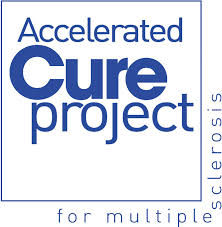Accelerated Cure Project to Increase Participation in MS Trials
Written by |

 Nonprofit organization, Accelerated Cure Project for Multiple Sclerosis, is launching a national campaign called iConquerMS, which was designed by and for multiple sclerosis patients to raise awareness of the importance of health data and supporting research.
Nonprofit organization, Accelerated Cure Project for Multiple Sclerosis, is launching a national campaign called iConquerMS, which was designed by and for multiple sclerosis patients to raise awareness of the importance of health data and supporting research.
On the iConquerMS portal, patients can add their health data, suggest research topics and receive information about the studies currently being conducted.
The campaign wants patients to have a more active role in research, providing their health data and information on what impacts them the most. “Our ambitious agenda is nothing less than establishing a new model for research in multiple sclerosis, one that can also be applied to other neurological diseases,” said the president and CEO of the organization and principal investigator in the initiative, Robert McBurney, Ph.D., in a press release.
The scientist also explained that, unlike traditional data collections, iConquerMS is nonprofit and its “goal in 2015 is to recruit 20,000 MS patients, each contributing their health data and research ideas and engaging with the research community to shape and accelerate a new generation of research studies. In addition, as the only multiple sclerosis initiative currently in PCORnet, the National Patient-Centered Clinical Research Network, iConquerM can contribute health data to other research efforts in a streamlined fashion, while also providing MS researchers access to data from millions of people across the country. We are the first truly patient-powered big data endeavor in MS.”
Alberto Ascherio, M.D., Dr.P.H., a professor of epidemiology and nutrition at the Harvard School of Public Health, and professor of medicine at the Harvard Medical School, also believes that “the proposed compilation of health-related and demographic data and biosamples from tens of thousands of MS patients located across the US represents a significant addition to the research landscape and I enthusiastically welcome its creation.”![]()
In addition, iConquerMS is also expected to help overcome a major clinical barrier in the treatment of multiple sclerosis: the inability to determine certain characteristics that would help define the most efficient treatment for each patient. “Two important benefits of personalized medicine are to find the right therapy for the right patient at the right time, and to ensure that research and clinical care are patient-centric. iConquerMS will advance us towards both those goals,” explained the president of Personalized Medicine Coalition, Edward Abrahams, Ph.D.
The initiative has already been supported by several MS advocacy organizations, such as the National Multiple Sclerosis Society, the Multiple Sclerosis Association of America, the Multiple Sclerosis Foundation, and Can Do MS, which are all encouraging patients to participate. These organizations believe in the initiative’s capacities to expand knowledge of symptoms, treatments, and quality of life for MS patients.
“Understanding the MS experience from the patient’s perspective is vital to improving the care of people with MS and to creating effective treatment paradigms. iConquerMS is a ground-breaking initiative that will help to drive research to end MS forever,” said Timothy Coetzee, Ph.D., chief advocacy for Services and Research Officer at the National Multiple Sclerosis Society.
[adrotate group=”4″]
“Thanks to iConquerMS™, people living with MS have a new and strong voice in the research process. We can all contribute our ideas and health data to make a difference,” added the lead patient representative for the initiative, Laura Kolaczkowski. “I want researchers to know about me and my life, since my data – and that of the tens of thousands of other individuals living with MS – hold the clues that will unlock the mysteries of multiple sclerosis.”
Accelerated Cure Project for MS has received initial funding from the independent, non-profit organization Patient-Centered Outcomes Research Institute (PCORI) to support iConquerMS, and has also established a partnership with the Arizona State University and Feinstein Kean Healthcare to help launch the project.





